| Selo | Rowman & Littlefield Publishing Group Inc |
|---|---|
| Edição | 0 |
| Idioma | Inglês |
| Autores | Robert Winer |
| Acabamento | Capa Dura |
| Quantidade de Páginas | 294 |
| Origem | Literatura Estrangeira |
 A escola não é para todos: professores
A escola não é para todos: professores
Telha
R$ 57,00 à vista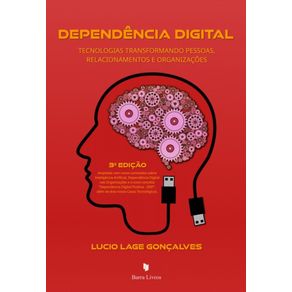 Dependência digital: Tecnologias transformando pessoas, relacionamentos e organizações
Dependência digital: Tecnologias transformando pessoas, relacionamentos e organizações
Barra Livros
R$ 72,00 à vista Psicossomática, psico-oncolongia e câncer
Psicossomática, psico-oncolongia e câncer
Paco Editorial
R$ 40,90 à vista Arteterapia e gestalt: contribuindo para o resgate de potencialidades em adolescentes abusadas sexualmente
Arteterapia e gestalt: contribuindo para o resgate de potencialidades em adolescentes abusadas sexualmente
Paco Editorial
R$ 31,90 à vista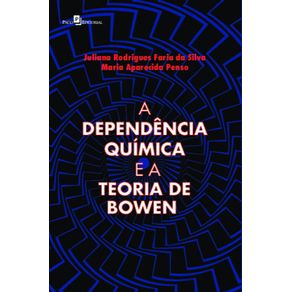 A dependência química e a teoria de Bowen
A dependência química e a teoria de Bowen
Paco Editorial
R$ 54,90 à vista Psicologia e espiritualidade num mundo em chamas
Psicologia e espiritualidade num mundo em chamas
Paco Editorial
R$ 113,90 ou até 2x sem juros Caderno De Anotações Pedagogia Do Sentido - Volume 2
Caderno De Anotações Pedagogia Do Sentido - Volume 2
IECVF
R$ 52,90 à vista Psicologia e saúde: teoria e práticas
Psicologia e saúde: teoria e práticas
Pimenta Cultural
R$ 45,90 à vista Síndrome de Burnout - Desenvolvimento e validação de escala psicofísica de razão
Síndrome de Burnout - Desenvolvimento e validação de escala psicofísica de razão
Dialética
R$ 73,40 à vista Enciclopédia Dos Sonhos
Enciclopédia Dos Sonhos
Clube de Autores
R$ 61,90 à vista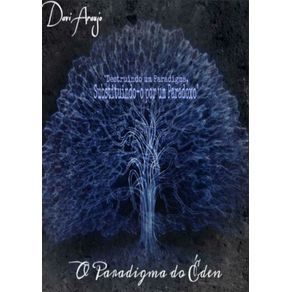 O Paradigma Do Éden
O Paradigma Do Éden
Clube de Autores
R$ 34,25 à vista A Perícia Psicológica no Brasil
A Perícia Psicológica no Brasil
Fólio Digital
R$ 73,90 à vista Traços e ensaios - Poéticas e estéticas clínicas
Traços e ensaios - Poéticas e estéticas clínicas
Pimenta Cultural
R$ 72,90 à vista Emoção em Terapia
Emoção em Terapia
Artmed
R$ 92,00 à vista Psicologia Transpessoal - Abordagem Integrativa; Um Conhecimento Emergente em Psicologia da Consciência
Psicologia Transpessoal - Abordagem Integrativa; Um Conhecimento Emergente em Psicologia da Consciência
Editora Unijuí
R$ 84,90 à vista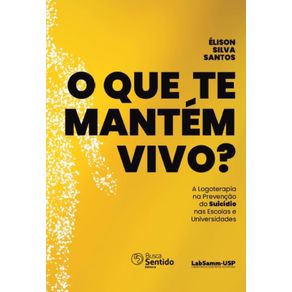 O que te mantém vivo?
O que te mantém vivo?
Busca Sentido
R$ 51,90 à vista Viver com modera??o
Viver com modera??o
Casa dos Mundos
R$ 39,90 à vista Vínculo fantasma (1305)
Vínculo fantasma (1305)
RECORD
R$ 49,90 à vista Jung e os pós-junguianos
Jung e os pós-junguianos
Editora Vozes
R$ 190,00 ou até 3x sem juros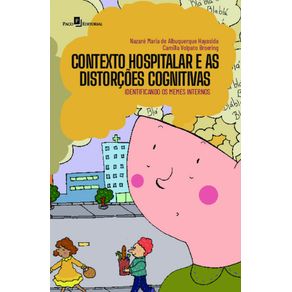 Contexto hospitalar e as distorções cognitivas: identificando os memes internos
Contexto hospitalar e as distorções cognitivas: identificando os memes internos
Paco Editorial
R$ 45,90 à vista Transtorno do pânico: uma visão positiva, humanista e transpessoal
Transtorno do pânico: uma visão positiva, humanista e transpessoal
Paco Editorial
R$ 44,90 à vista A persistência das deusas: Representações simbólicas do feminino na atualidade
A persistência das deusas: Representações simbólicas do feminino na atualidade
Paco Editorial
R$ 37,90 à vista Síndrome de Burnout - Desenvolvimento e validação de escala psicofísica de razão
Síndrome de Burnout - Desenvolvimento e validação de escala psicofísica de razão
Dialética
R$ 73,40 à vista Enciclopédia Dos Sonhos
Enciclopédia Dos Sonhos
Clube de Autores
R$ 61,90 à vista Pedagofilosofia Clínica
Pedagofilosofia Clínica
Clube de Autores
R$ 75,94 à vista A Perícia Psicológica no Brasil
A Perícia Psicológica no Brasil
Fólio Digital
R$ 73,90 à vista O manejo da transferência no tratamento dos novos sintomas - Uma questão na clínica atual
O manejo da transferência no tratamento dos novos sintomas - Uma questão na clínica atual
Dialética
R$ 62,90 à vista Uma Base Segura
Uma Base Segura
Artmed
R$ 89,00 à vista Precisamos falar com os homens? Colonialidade e estratégias de transformação das masculinidades
Precisamos falar com os homens? Colonialidade e estratégias de transformação das masculinidades
EdUERJ
R$ 75,90 à vista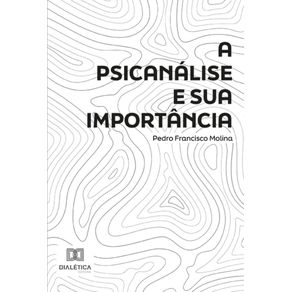 A Psicanálise e sua Importância
A Psicanálise e sua Importância
Dialética
R$ 73,40 à vista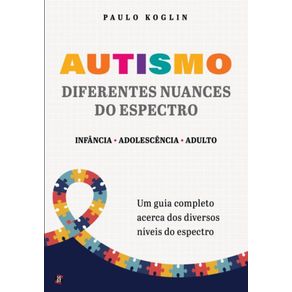 Autismo diferentes nuances do espectro: Inf?ncia/Adolesc?ncia/Adulto
Autismo diferentes nuances do espectro: Inf?ncia/Adolesc?ncia/Adulto
SGuerra Design
R$ 71,97 à vista Vínculo fantasma (1305)
Vínculo fantasma (1305)
RECORD
R$ 49,90 à vista A persistência das deusas: Representações simbólicas do feminino na atualidade
A persistência das deusas: Representações simbólicas do feminino na atualidade
Paco Editorial
R$ 37,90 à vista E por falar em morte
E por falar em morte
Paco Editorial
R$ 26,90 à vista Psicologia e espiritualidade num mundo em chamas
Psicologia e espiritualidade num mundo em chamas
Paco Editorial
R$ 113,90 ou até 2x sem juros Caderno De Anotações Pedagogia Do Sentido - Volume 1
Caderno De Anotações Pedagogia Do Sentido - Volume 1
IECVF
R$ 52,90 à vista Síndrome de Burnout - Desenvolvimento e validação de escala psicofísica de razão
Síndrome de Burnout - Desenvolvimento e validação de escala psicofísica de razão
Dialética
R$ 73,40 à vista Novos Contextos De Introdução Á Psicologia
Novos Contextos De Introdução Á Psicologia
Clube de Autores
R$ 99,89 à vista O Paradigma Do Éden
O Paradigma Do Éden
Clube de Autores
R$ 34,25 à vista Perdas irreparáveis - Alienação parental e falsas acusações de abuso sexual
Perdas irreparáveis - Alienação parental e falsas acusações de abuso sexual
Fólio Digital
R$ 65,00 à vista A hipótese da felicidade
A hipótese da felicidade
LVM Editora
R$ 59,90 à vista Mapa da Prosperidade: Transforme sua realidade - Um passo de cada vez, cinco chaves para a prosperidade
Mapa da Prosperidade: Transforme sua realidade - Um passo de cada vez, cinco chaves para a prosperidade
Dialética
R$ 73,40 à vista Uma Base Segura
Uma Base Segura
Artmed
R$ 89,00 à vista Psicologia Transpessoal - Abordagem Integrativa; Um Conhecimento Emergente em Psicologia da Consciência
Psicologia Transpessoal - Abordagem Integrativa; Um Conhecimento Emergente em Psicologia da Consciência
Editora Unijuí
R$ 84,90 à vista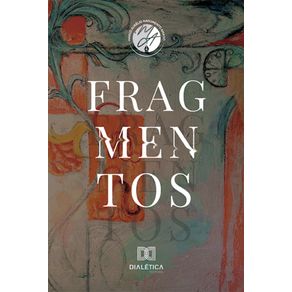 Fragmentos
Fragmentos
Dialética
R$ 62,90 à vista